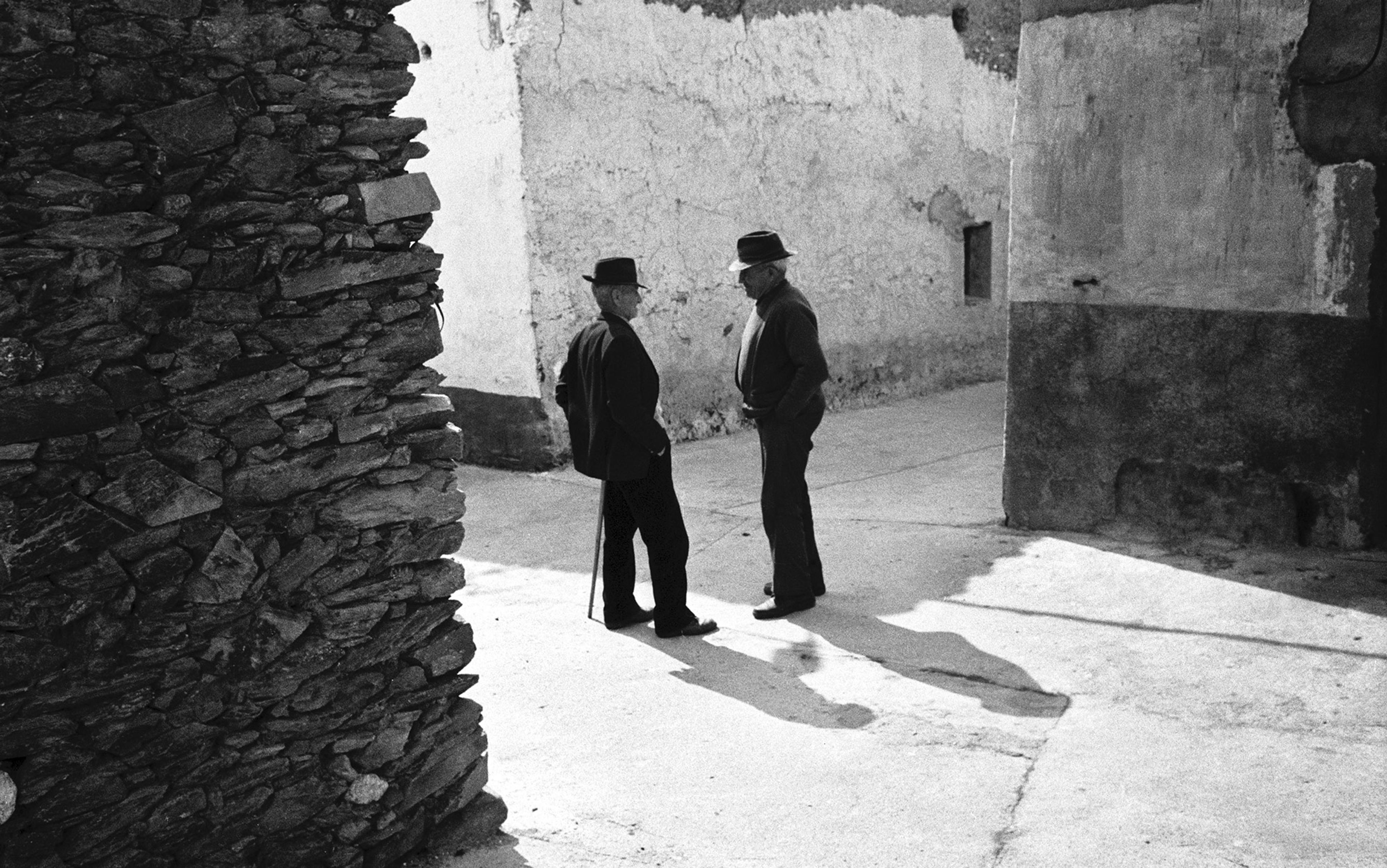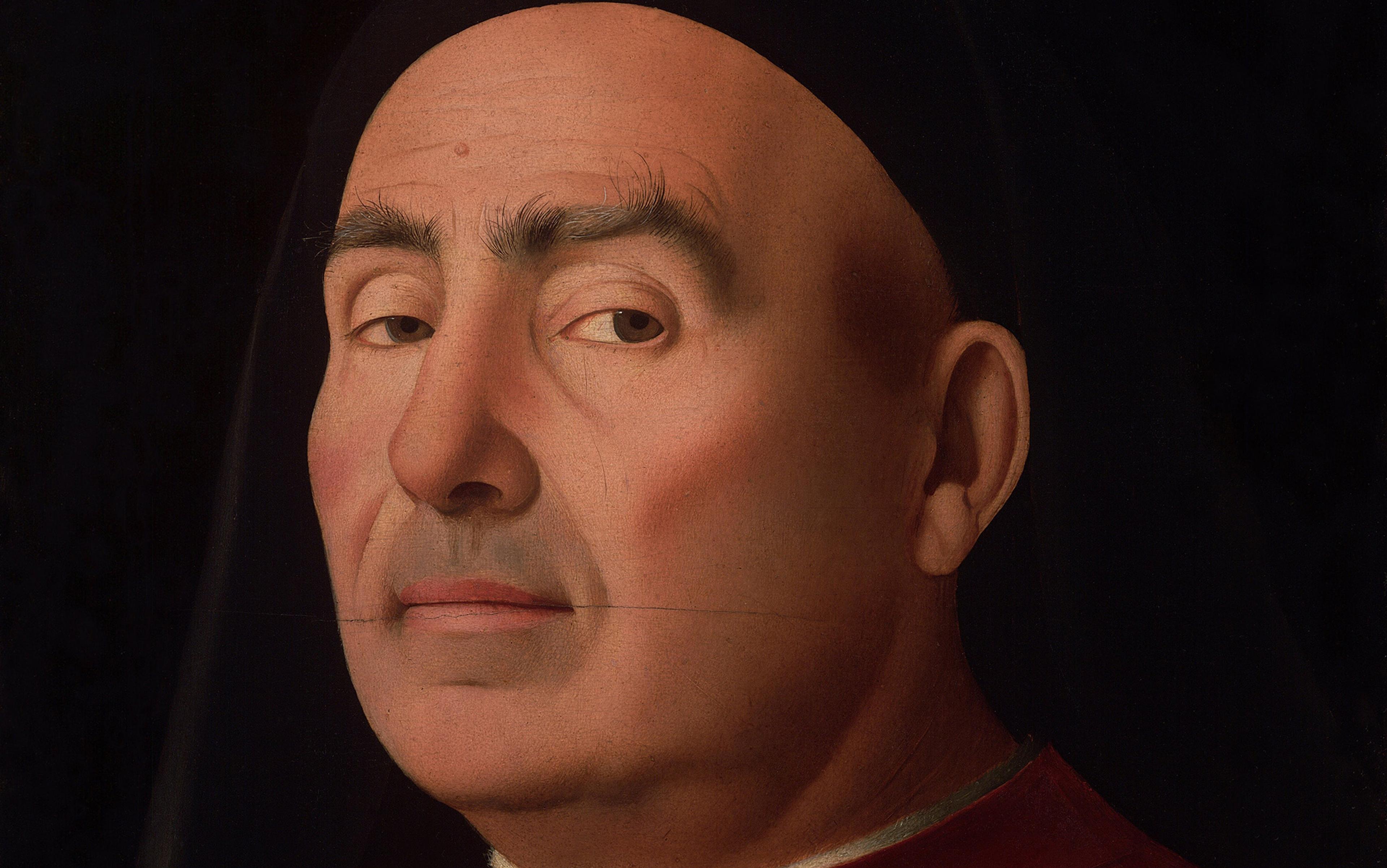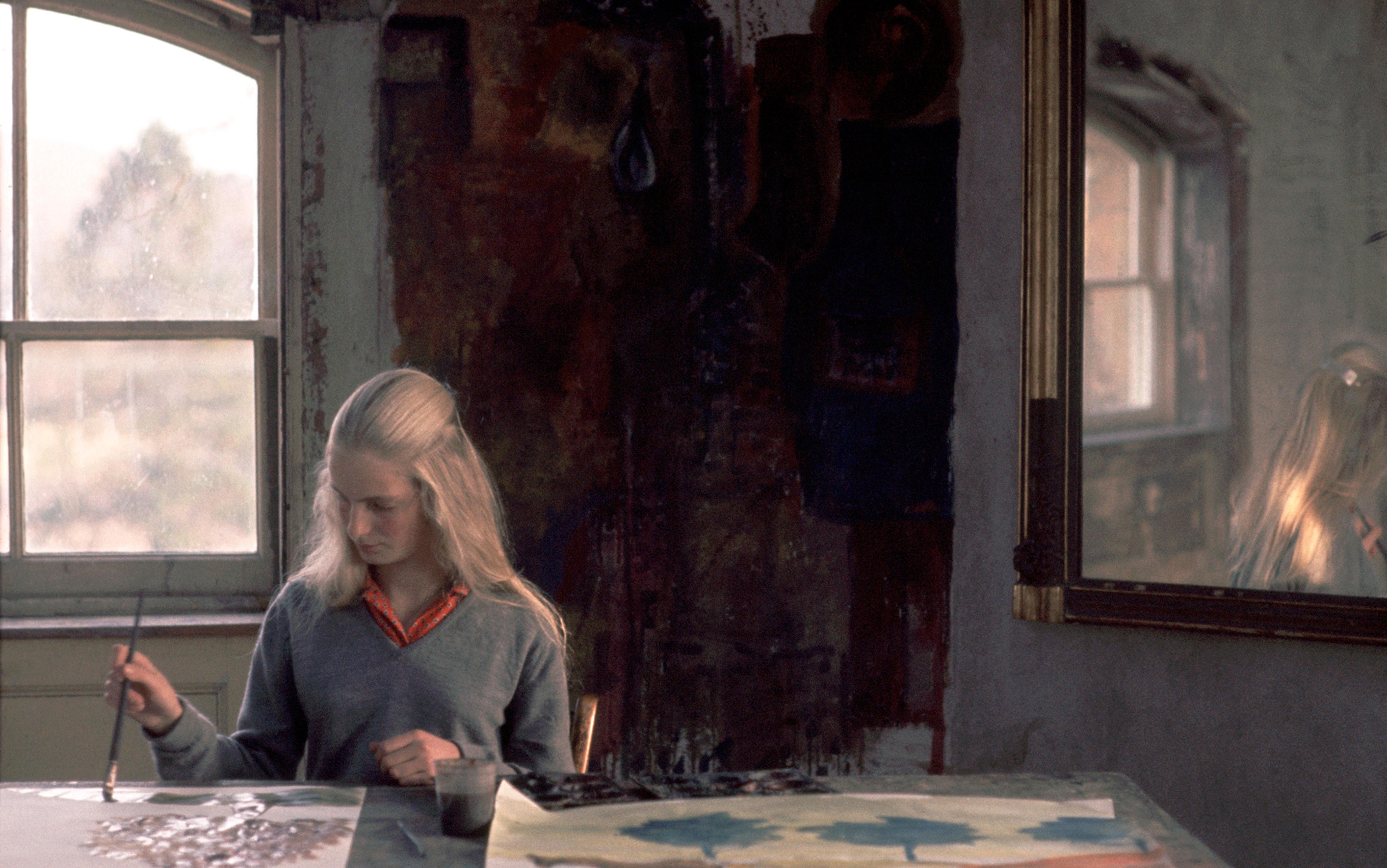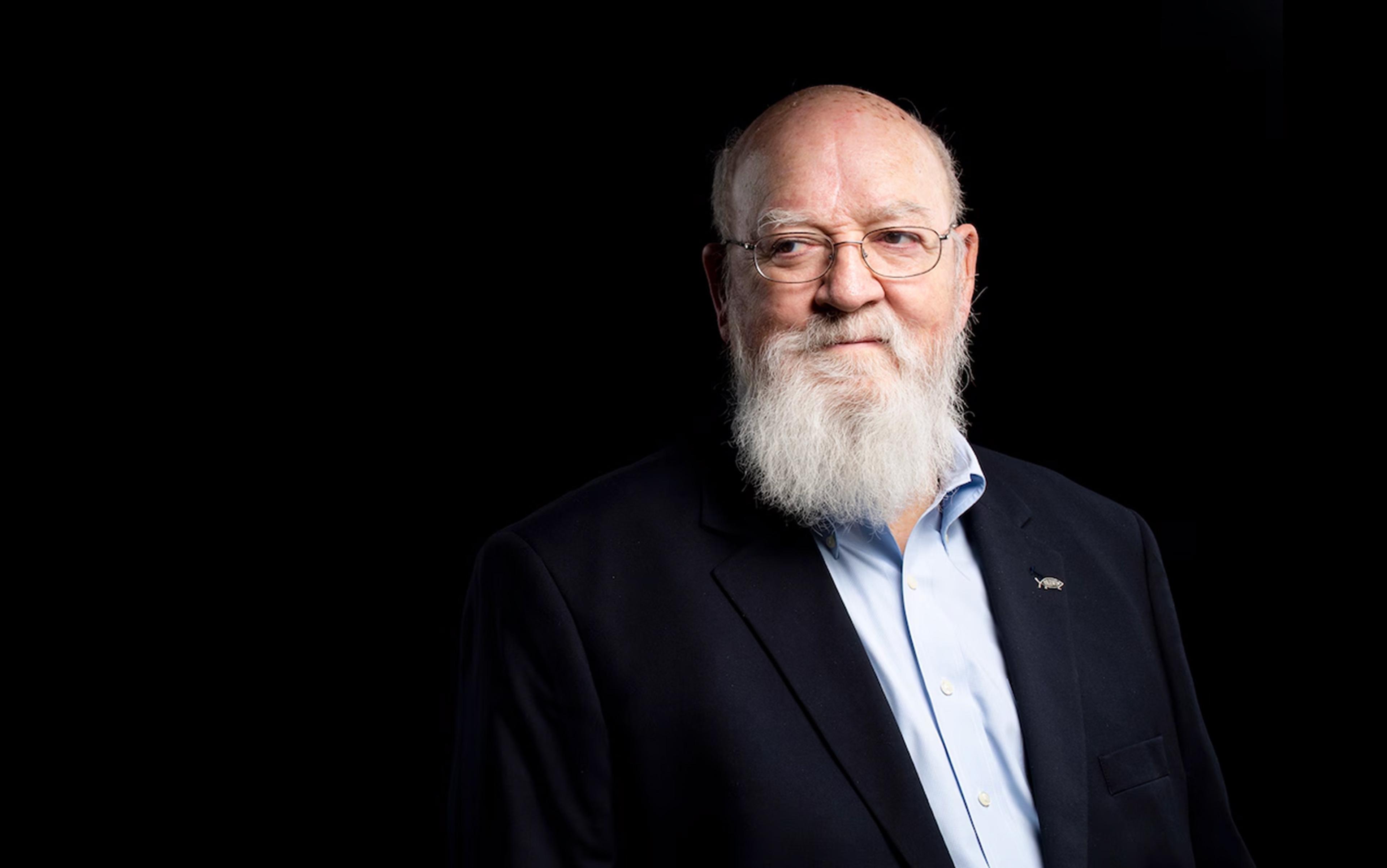Johann Gottlieb Fichte is one of the most underappreciated post-Kantian philosophers. Yet during the peak of his career in the 1790s, when he was lecturing in his private garden and within the walls of the University of Jena in Germany, he was hailed as a ‘new hero’ arriving ‘in the land of truth’, as F W J Schelling put it in 1795 in a letter to G W F Hegel. More recently, the American philosopher Allen Wood has suggested that ‘Fichte is the most influential figure in the continental tradition since 1800.’
This, if true, is largely due to the direct and indirect influence he exerted on continental philosophers such as Schelling, Hegel, Karl Marx, Søren Kierkegaard, György Lukács, Martin Heidegger and Emmanuel Levinas, as well as the neo-Kantians Heinrich Rickert and Emil Lask (sometimes called neo-Fichteans), who shaped the reception of Kantian philosophy in Germany during the early 20th century.
And yet, outside of the scholarship on Hegel and the tradition of German Idealism – a tradition oriented by the works of Kant, and which includes Fichte, Schelling and Hegel (among others) – Fichte’s philosophical views are hardly known today. His theory of self-consciousness and views on social recognition have been overshadowed by Hegel’s influence. Fichte is typically treated as a mere stepping stone to Hegel’s ‘improved’ view on the intersubjective nature of self-consciousness. Unfortunately, Fichte’s own views on freedom and intersubjectivity have gone underappreciated outside the narrow historical study of his philosophy, even though he developed them prior to Hegel’s, and they shaped the views of Schelling and Hegel. A recovery and re-assessment are due.
Born in 1762, Fichte grew up in Rammenau, a small German town approximately 30 miles east of Dresden. His origins were certainly humble. His father was a ribbon weaver, and Fichte would have likely taken up the craft if it was not for two fortuitous events that transformed his circumstances.
The first event occurred on a Sunday in 1770 when the Baron Ernst Haubold von Miltitz, who was visiting Rammenau, missed the Sunday sermon. Wanting an account of the sermon, Miltitz was introduced to the nine-year-old Johann Gottlieb, whose powerful intellect allowed him to memorise and recite it, more or less, verbatim. Impressed, Miltitz, with the pastor’s encouragement, offered to support Fichte’s education. Under Miltitz’s patronage, Fichte attended the Schulpforta, the boarding school where the poet Friedrich Gottlieb Klopstock, the historian Leopold von Ranke and the philosopher Friedrich Wilhelm Nietzsche were also educated. Without the support of the Miltitz family, it is doubtful Fichte would ever have transcended his class status as an artisan to, eventually, fulfil his vocation as a scholar, or philosopher.
Fichte was broke. Needing assistance to make his way back to Saxony, he asked Kant for a loan
The second event occurred in 1791 in Königsberg where Fichte travelled to meet Kant. Fichte reports that, during the previous summer, his reading of Kant awoke him from his own ‘dogmatic slumber’, to reuse Kant’s own remark about his experience of reading Hume. After studying Kant, Fichte excitedly explained to Weisshuhn, his schoolmate:
I have been living in a new world ever since reading the Critique of Practical Reason. Propositions which I thought could never be overturned have been overturned for me. Things have been proven to me which I thought could never be proven.
It was only after reading Kant’s Critique of Practical Reason (1788) that Fichte abandoned his scepticism about the possibility of freedom. Until then, he had been a determinist. After failing to impress Kant at their meeting, Fichte decided to draft a work on religion, a topic Kant had yet to write a book about. His purpose was to establish that he was, in fact, worthy of Kant’s support. He even modelled his work on Kant’s own method and terminology. After spending much of the summer in Königsberg with Kant and his circle of friends, Fichte was broke. Needing assistance to make his way back to Saxony, Fichte – in a move that still causes his acolytes embarrassment – asked Kant for a loan. Presumably, Kant asked himself ‘What if everyone did that?’ Rather than provide the loan, Kant offered to pass Fichte’s manuscript on religion to his own publisher.
As a result of Kant’s gesture, when Fichte’s book An Attempt at a Critique of All Revelation was published in 1792, it was printed accidentally without Fichte’s name on it. Reviewers naturally mistook the anonymous book as a new work by Kant, with some reviewers attributing it to the ‘philosopher of Königsberg’. These circumstances forced Kant to publicly acknowledge he was not the book’s author, but that it was written by the young upstart Johann Gottlieb Fichte. It’s hard to imagine in the world of philosophy a more fortuitous and consequential example of mistaken identity. Just a few years later, Fichte would secure his position at the University of Jena, and soon his philosophy would become a guiding star for young and ambitious thinkers such as Schelling, Hegel, Hölderlin, Novalis and Friedrich Schlegel, many of whom attended his lectures, read his works, and tried to complete or surpass his system.
When Fichte arrived in Jena in 1794, he took over the chair in philosophy previously held by Karl L Reinhold, a priest who helped to popularise Kant’s critical philosophy in Germany in the late 1780s and transformed Jena into a cradle of post-Kantian philosophy in the early 1790s. Fichte, who in addition to his work on religion had also published a controversial defence of the French Revolution (also Kantian in spirit), was ready to carry the torch. He just needed his own philosophical system. While teaching private lectures in Zürich prior to his move to Jena, he proceeded to construct such a system so that, upon his arrival in Jena, he’d not suffer imposter syndrome.
That system, the ‘first system of freedom’ (as he believed it to be), was his Wissenschaftslehre, or ‘science of knowledge’. Initially, the Wissenschaftslehre was his attempt to rationally reconstruct Kant’s critical philosophy, including his idealist theory of knowledge, the distinction between sensibility and understanding, Kant’s conception of the categories of the understanding, space and time, and even the moral law and moral agency. No small task. Fichte held that Kant’s critical philosophy, if its conclusions are to be accepted, ought to be based upon a first principle of subjectivity. In the words, again, of Schelling: ‘Kant has provided the results. The premises are still missing. And, who can understand the results without the premises?’ In short, Fichte’s system provided the missing premises in the form of a first principle.
Here is how Fichte first states this principle: ‘The I originally posits its own being purely and simply.’ What Fichte has in mind is not obvious, and possibly paradoxical. He is claiming that the core activity of subjectivity involves an I (or subject) determining itself (positing itself) to be an I, without relying on anything outside its own activity (purely), and without that activity consisting of multiple activities (simply). From this, Fichte attempts to deduce, or reconstruct, the Kantian system, in effect constructing the first system of freedom, something Kant attempted, but failed to achieve.
How is self-consciousness, awareness of oneself as oneself, possible?
Now, Fichte’s principle sounds paradoxical since it seems as if the I brings its own being into existence. How can something bring itself into existence if it did not already exist? I will not attempt to resolve the apparent paradox here, but it is worth noting that Fichte is not suggesting that there exists no activity within the subject prior to positing itself as an I, but only that the activity is indeterminate, so that a unique sort of activity is necessary to constitute or transform the subject into an I, a kind of congealing of the subjective self.
Fichte struggled over the years to find the best way to describe the activity of the I in positing itself. He characterised it as a self-reverting activity, a reflection on itself, a transitioning from indeterminacy to determinacy, a subject-object, a double series of consciousness, an absolute I, a pure I, and a self-positing I. Fichte was hesitant to employ the same conceptual vocabulary or ‘jargon’ throughout his career, since he believed that a static discourse might either impede students from thinking along with his system or hamper their ability to grasp it through their own thinking. Instead, they might merely mimic his mode of doing philosophy by trading on jargon in place of carrying out the hard work of understanding and developing the insights the philosophical system offers.
Some scholars have suggested that Fichte’s changing philosophical discourse is a response to a specific philosophical problem he took on himself to first discover and resolve. The problem, call it ‘the reflection problem’, concerns the explanation of how it is possible for a rational being to be aware of itself and its representations as its very own. In other words, how is self-consciousness, awareness of oneself as oneself, possible? Fichte believes that all previous philosophers have run into a problem when attempting to account for our capacity for self-consciousness. Previous philosophers have relied on our reflective capacities to explain how self-consciousness is possible, however, Fichte insists that a problem arises when an explanation of self-consciousness relies on reflection. Explanations of self-consciousness that rely on reflection attempt to explain it in virtue of two distinct mental acts: the first is a consciousness of some object, such as a table; the second act is a separate act of consciousness directed at the first act. In virtue of this second, reflective act, the first act of consciousness is recognised as my own, as belonging to me, as one of which I am self-conscious.
The problem with this explanation of self-consciousness is that the second, reflective act treats the first act of consciousness as an ‘object’. However, if I am conscious of myself, it seems that I must be conscious of this second act too, since it is, after all, my own mental activity. But, to explain how it is that I am conscious of the second act, a third act of consciousness is required that is conscious of the second and treats the second act as an object of its consciousness. This type of explanation naturally leads to an infinite regress of reflective acts (a fourth, fifth, etc) and will not do as an explanation of self-consciousness.
Fichte explicitly recognised this problem in his published writings and lectures. The philosopher Dieter Henrich referred to Fichte’s appreciation of the reflection problem as ‘Fichte’s Original Insight’. Fichte’s own theory of self-consciousness and the self-positing I is meant to resolve this problem. For Fichte, the activity of the I, by immediately intuiting its own activity as itself, constitutes itself (or makes itself, if you will) into an I. The I, you might say, consists in a kind of pre-reflective activity that conditions any reflection or deliberation on the part of the person. Fichte’s changing philosophical discourse, then, might be attributed to his attempts to get his readers and students to appreciate his resolution of the reflection problem.
But how does Fichte’s response to the reflection problem relate to the question of freedom? Fichte’s thought is that this peculiar activity of the I, its positing itself as an I, is a spontaneous and free act that is unconditional and based in nothing beyond itself; it is not even based in the not-I, whatever stands against the activity of the I, even though the not-I serves as a check or limit on the I. It is important to remember that we are talking about a very minimal conception of the ‘the I’, that is, the essential pre-reflective activity required for self-conscious thought and action. To be clear, Fichte is not claiming here that the ‘self’ is untouched by the world within which it is situated. In fact, Fichte will insist for this reason on drawing a distinction between the self (the person as embodied, culturally, politically and morally situated) and the I as a pure activity that posits itself.
What is particularly striking about the picture of subjectivity Fichte offers, and one reason he views his system as a system of freedom, is that the I’s self-positing shapes the rest of the system. The main reason for this is that the I’s self-positing activity, as a form of self-determination, shapes the reflective self-conscious activity we enact as rational, moral and political agents. To be a rational being, an embodiment of reason, one must be a self-positing I.
While questions about the nature of subjectivity would always preoccupy Fichte, his philosophical interests ranged more widely than just this. One key area was his interest in social philosophy, and in particular how we recognise one another’s freedom. Fichte’s love of Kant ran so deep that he named his only child Immanuel. And, although not exactly a doting father, he did take a philosophical interest in the upbringing of children. His own views on the subject drew from the writings of Rousseau and the lesser-known Johann Heinrich Pestalozzi, a Swiss pedagogue whose love of Rousseau ran so deep that he named his only child Jean-Jacques.
At the centre of Fichte’s own conception of upbringing is the concept of the summons. A summons is a demand in which one person calls another to act by taking up a particular task as their own. Fichte outlines the concept, somewhat opaquely, in his Foundations of Natural Right (1796/97) when he describes the summoned subject as ‘being-determined to be self-determining, ie, as a summons to the subject, calling upon it to resolve to exercise its efficacy.’ In this work, Fichte argues that reflective self-consciousness – our capacity to reflect on and deliberate about our beliefs, desires, reasons and intentions – is a social, intersubjective achievement that gradually develops through a subject’s upbringing in virtue of this specific type of social interaction, the summons.
To get a sense of what Fichte has in mind, consider an exchange between a father and daughter: the father summons his daughter to the dinner table. In this case, the father demands that she act according to a plan of action she has freely designed, but one that is responsive to his summons. The father may call out: ‘Dinner time!’ In response to the call, she ideally stops whatever she is doing and walks over to table. She is not physically coerced by her father; the summons is, crucially, a concept of freedom and so allows for her to act freely, of her own volition. By responding to the summons, she determines herself by resolving to exercise her own will and efficacy. This type of social interaction, Fichte believes, is essential to the development of reason in human beings, and, ultimately, to our capacity to respect and appreciate the freedom of others.
‘I must in all cases recognise the free being outside me as a free being’
The summons plays an essential role in Fichte’s theory of self-consciousness too. Reflective self-consciousness, according to Fichte, is conditioned by the summons of other rational beings. Many people associate a similar idea with Hegel and his views on social recognition, developed most famously in his work The Phenomenology of Spirit (1807), and most infamously in its ‘master-slave dialectic’, which dramatises a struggle for recognition. There, Hegel begins to develop his view that the achievement of self-consciousness is essentially dependent upon relations between subjects in which they recognise one another as rational beings.
While I don’t intend to offer a comprehensive comparison between Fichte and Hegel’s views on self-consciousness and social recognition, one often overlooked contrast is worth noting. Hegel’s struggle for recognition has proven useful as a lens through which to understand social and political movements where there is often a struggle to have one’s rights or identity recognised and respected. It is not obvious, however, that all or even most social interactions involving social recognition ought to be understood in terms of a struggle or in terms of the ‘politics of recognition’, as some Hegelians have suggested.
In contrast, Fichte’s summons involves two types of recognition (as I see it) neither of which essentially depict recognition as a type of struggle nor rule it out: the first type is what I call elementary recognition where a child is gradually brought up through acts of summoning and social recognition to be (among other things) the kind of agent capable of summoning others and reliably responding to their summons; the second type is political recognition in which one subject summons rather than coerces another out of respect for their freedom and rights. The state, for instance, may summon you to jury duty or a neighbour may demand that you remove yourself from their property.
There is no reason to deny that the recognition of political rights is typically born of struggle. Yet, for Fichte, in order to have both external freedom and free social interaction, a more basic concept of right must be at work in society, one that may not specify any particular right, but is the social condition for rights as such. ‘I must in all cases,’ he says, ‘recognise the free being outside me as a free being, ie, I must limit my freedom through the concept of the possibility of his freedom.’
The very possibility of free social interaction presupposes, on Fichte’s view, this concept of right. Free social interaction, thus, presupposes acts of summoning, as well as respect for a space in which other subjects are free to act. Summoning another person accords with the concept of right because it, by offering a task for another to take up, provides a space for social freedom, the limiting of one’s own free agency for the sake of the free agency of others. At the basis of this interaction there may be a type of social negotiation, but the interaction is not essentially a struggle.
Fichte held that the recognition of others as free beings is necessary for the development of their self-consciousness. Self-consciousness, he held, is social in nature. But in what sense? In some places, he seems to mean that the summons (and social recognition) is necessary only for reflective self-consciousness, the type of consciousness we have when we deliberate about our beliefs and intentions. Elsewhere, he seems to imply that the summons and recognition is necessary for the very activity of self-positing, the minimal form of pre-reflective self-awareness that accompanies all forms of consciousness.
There is good reason, I think, to believe that Fichte came to recognise over time that self-consciousness as our capacity to be aware of our representations as our very own is a social phenomenon. This view is evident most clearly in his lectures where he claims that ‘consciousness begins with consciousness of a summons’. Even more, he claims that ‘the first representation I can have is that of being summoned.’ Much of Fichte’s reasoning hangs on the kind of distinctions that must be made in order to have an awareness of oneself as oneself, which, arguably, implies a capacity to distinguish oneself from others. ‘Self-consciousness,’ as Fichte puts it, ‘originates with my act of selection from a general mass of rational beings as such.’
The summons and social recognition, he argued, shape our cognitive and practical capacities. It is in virtue of them that we become free rational beings, the kind of creatures capable of respecting social and political rights, of acting morally, capable of taking on a vocation to shape the world for the sake of the freedom of each. ‘Act! Act!’ Fichte proclaims, ‘that is what we are here for … isn’t our greater perfection precisely this calling we have received to work for the improvement of others.’






